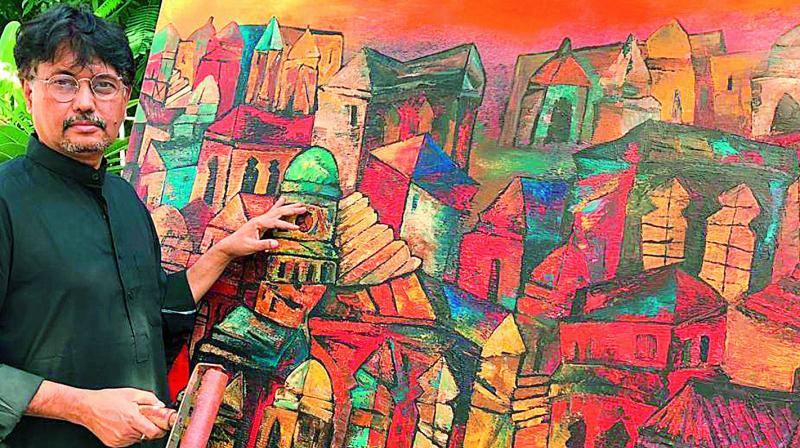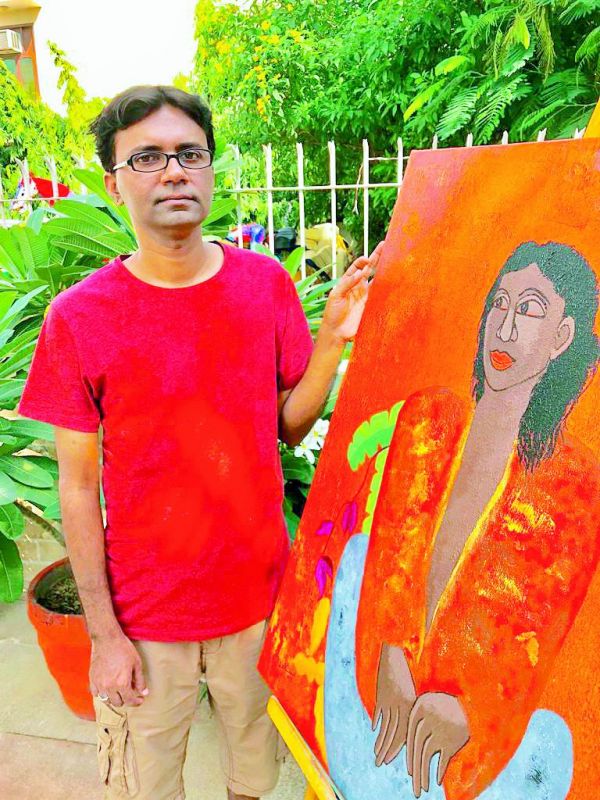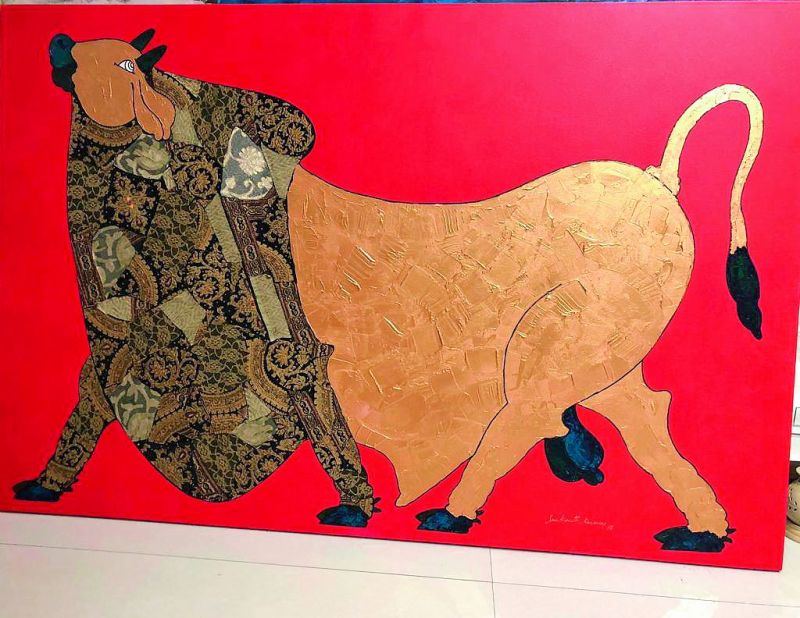Tales from a scenic sojourn
Four city artists who recently came back from the scenic sojourn' workshop, where each worked in his hallmark style, share their experiences.

‘Scenic sojourn’ art workshop organised by Easel stories art gallery brought together 15 talented artists from different parts of the country. Fawad Tamkanat and his brother Farhad, P.J. Stalin and Sreekanth Kurva were the Hyderabadi artists who participated.
Talking about his experience, Fawad Tamkanat, says, “The ‘scenic sojourn’ was planned to take place in Kulu Manali, located in the hills of the Himalayas. We started for Kulu from Delhi, but due to sudden weather changes — there were a couple of landslide and bad weather — from half way all 15 artists were safely brought back to Delhi”.
 Farhad Tamkanat’s work is rendered in simplified but stark, bold lines and a flamboyant colour palette.
Farhad Tamkanat’s work is rendered in simplified but stark, bold lines and a flamboyant colour palette.
“Easel stories, is a Delhi based gallery and has enough room to accommodate 15 artists. So the camp was immediately arranged in the gallery. Once the camp started, our experience with nature’s fury was forgotten and the artists got engrossed in their work”, says Farhad Tamkanat. His work here is a creative portrait rendered in simplified but stark, bold lines and a flamboyant colour palette.
On the other hand, the work by P.J. Stalin is non representational in its strengths. Stalin is one of the very few abstract artists from Hyderabad; the triptych painted by him is embedded with lively strokes and bold juxtaposing of colour spaces. He works with an unrestricted fervour and so an energised performance gets laid and assimilated on the picture surface. The quintessential play of line, colour, form and eventually balancing of all elements gets exemplified through his huge, triptych work. The cityscape painted by Fawad Tamkanat during the camp is an extension of his earlier works in the series. A cluster of constructions are spread out horizontally in a rhythm that enthrals. The distinctly eclectic Hyderabadi monuments or structures and fusion of ancient and modern architecture get celebrated in the work in a rich manner.
 Sreekanth Kurva’s artwork combines collage and painted sections.
Sreekanth Kurva’s artwork combines collage and painted sections.
Sreekanth Kurva who is unanimously loved for his strong yet graceful bulls, worked in his unique style wherein he combines collage and painted sections. The bull’s head is rendered in gold and so is the rear part of the body. In contrast with the crisscrossing but smooth juxtaposition of gold in impasto, the forelegs and surrounding sections are covered with a marvellous assemblage of multiple pieces of jardozi embroidery. The random rhythm of textured fragments and repetition of floral patterns altogether grant the work a sense of intrinsic effervescence.
HT02

